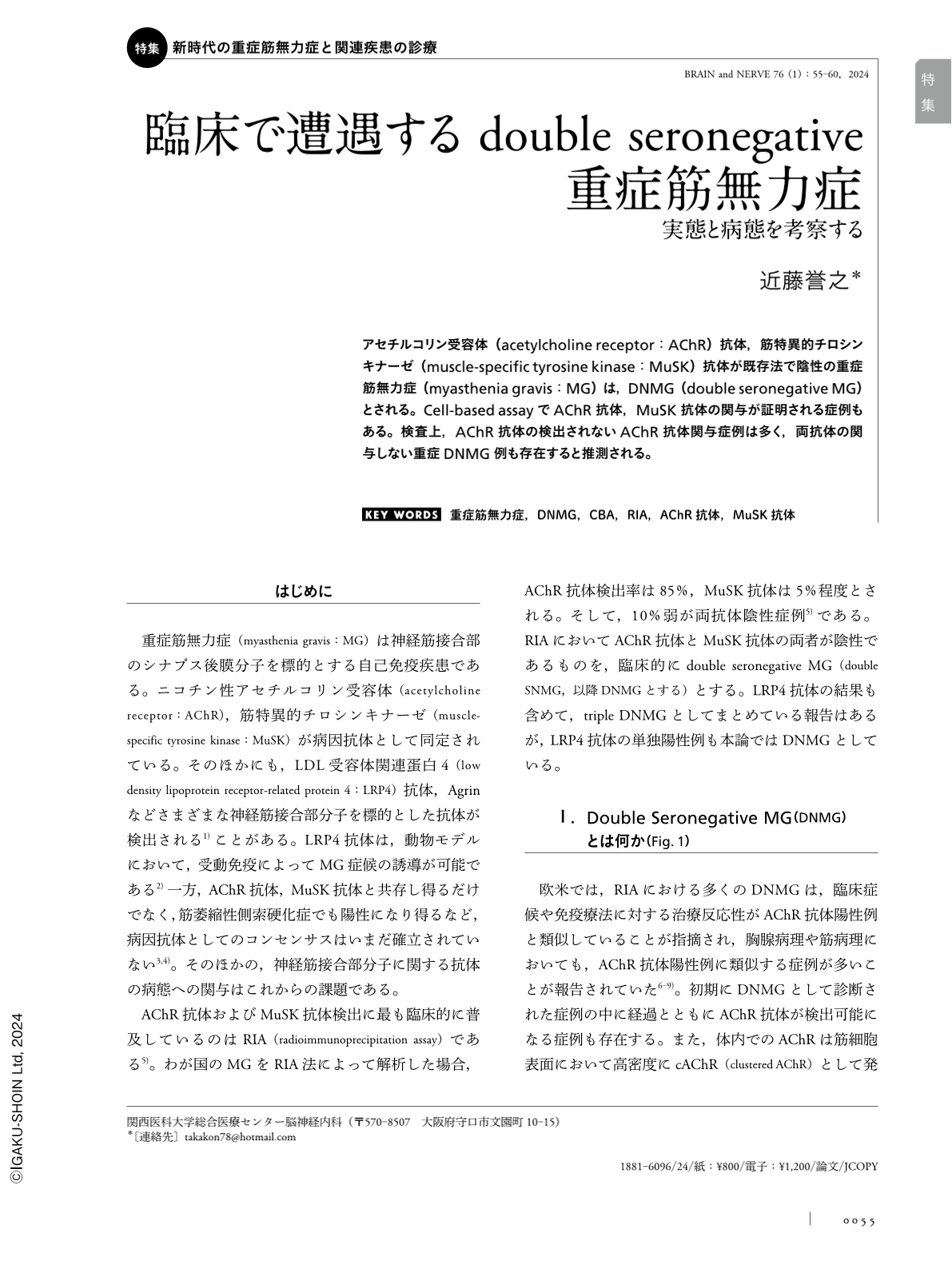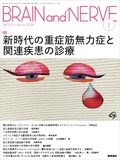Japanese
English
- 有料閲覧
- Abstract 文献概要
- 1ページ目 Look Inside
- 参考文献 Reference
アセチルコリン受容体(acetylcholine receptor:AChR)抗体,筋特異的チロシンキナーゼ(muscle-specific tyrosine kinase:MuSK)抗体が既存法で陰性の重症筋無力症(myasthenia gravis:MG)は,DNMG(double seronegative MG)とされる。Cell-based assayでAChR抗体,MuSK抗体の関与が証明される症例もある。検査上,AChR抗体の検出されないAChR抗体関与症例は多く,両抗体の関与しない重症DNMG例も存在すると推測される。
Abstract
Subjects with double seronegative myasthenia gravis (DNMG) are defined as those who are seronegative to both antibodies against acetylcholine receptor (AChR) and muscle-specific kinase (MuSK) by radioimmunoprecipitation assay (RIA). They are basically heterogeneous. But cell based assay (CBA) with clustered AChR has revealed a considerable part of DNMG are AChR antibody associated. Furthermore, information of clinical features and thymus pathology has raised a possibility that this could extend to those with undetectable antibodies by established assays whose symptoms are mild. Primary sites of antibody production are probably in the thymus in these cases. LOMG pathology is also suspected for a small part of DNMG by age onset, atrophic or age-related thymus and presence of titin antibody. In these cases, tolerance induction may be insufficient, and positive selection of autoimmune T cells such as AChR-specific T cells are promoted rather than negative selection. In addition, CBA detected MuSK antibody associated in a few cases with DNMG. Finally, some DNMG subjects have distinct clinical features with severe symptoms from those with AChR- MG and MuSK-MG in DNMG. They probably have different pathogenesis.

Copyright © 2024, Igaku-Shoin Ltd. All rights reserved.


